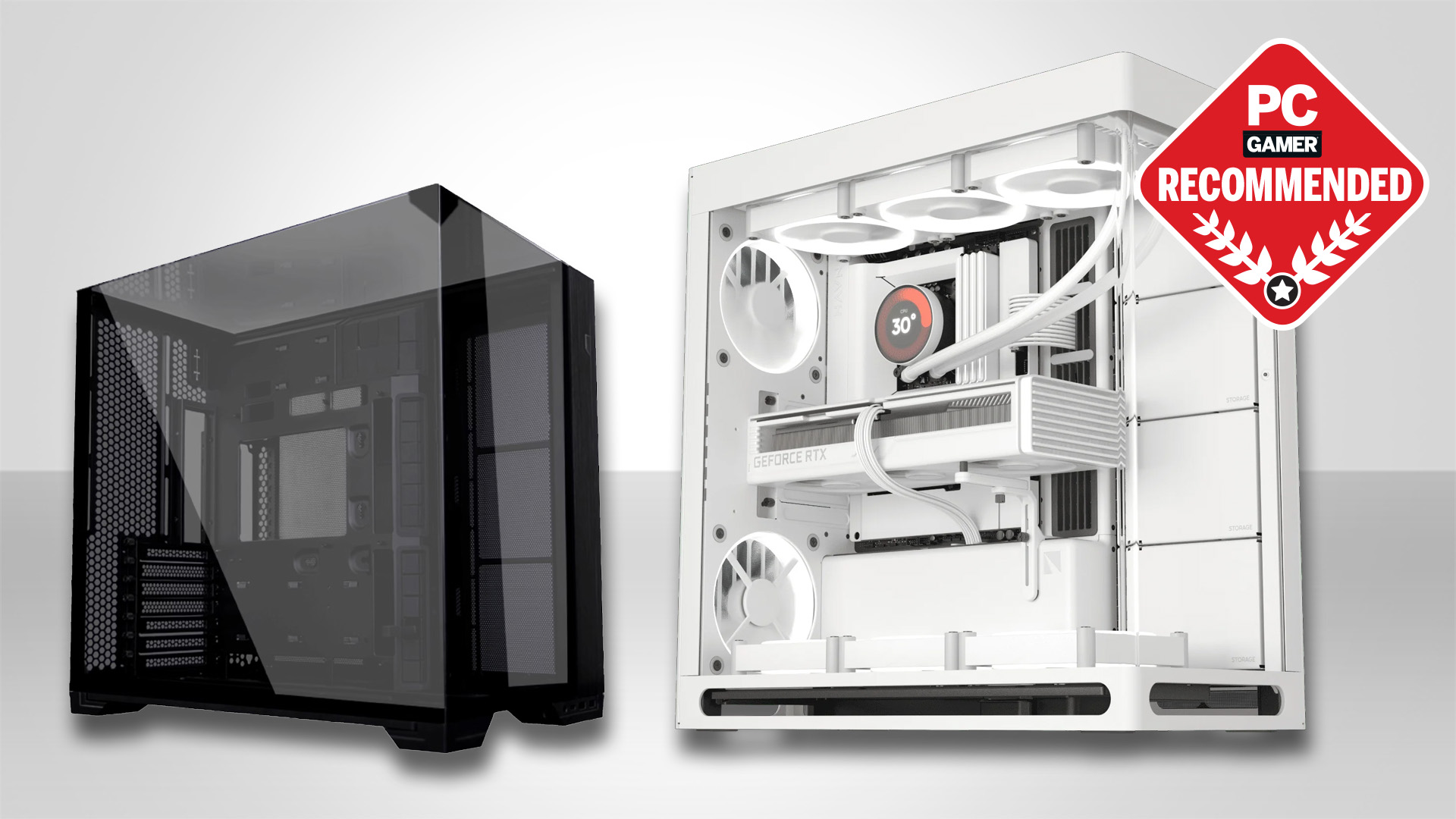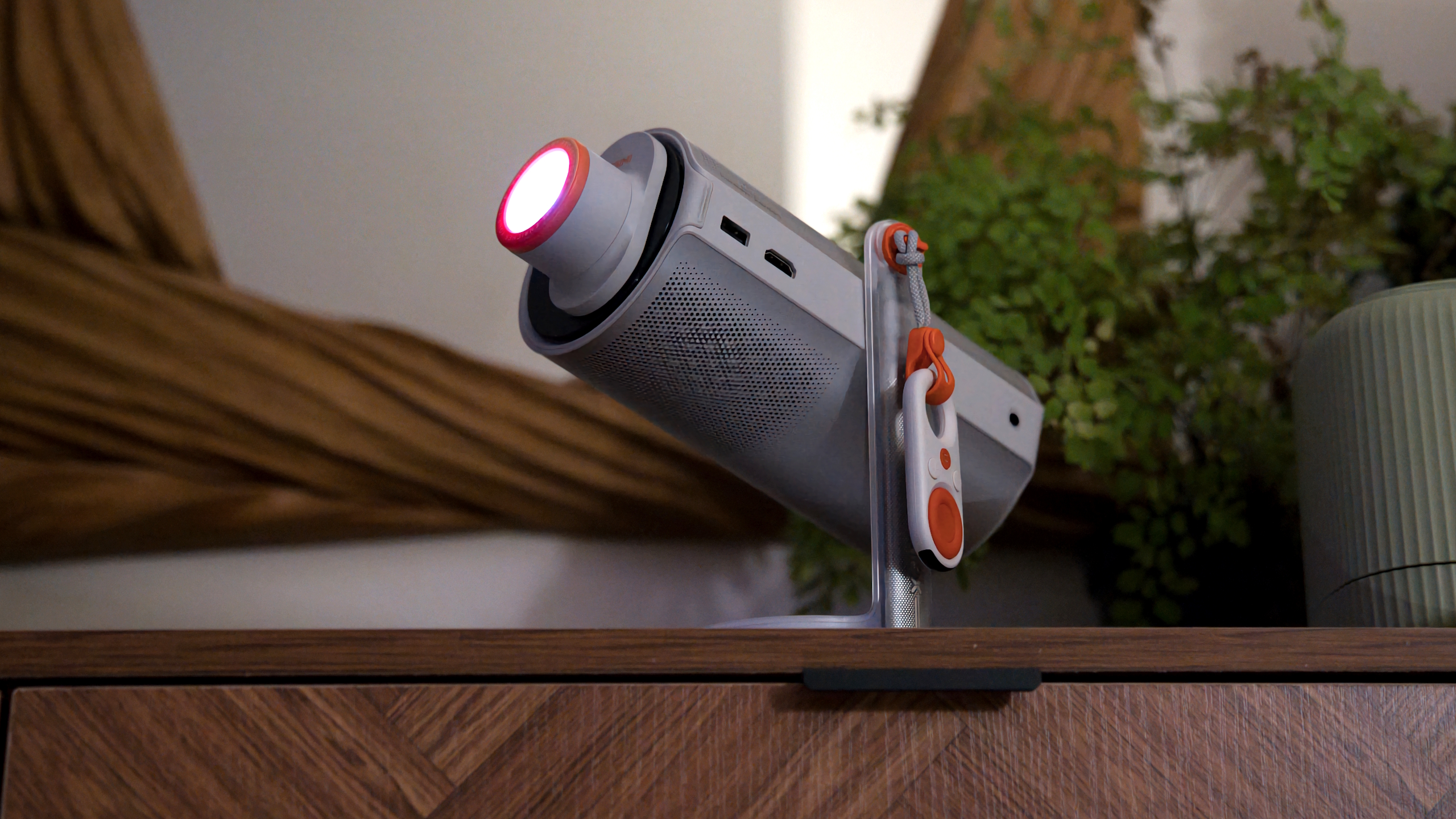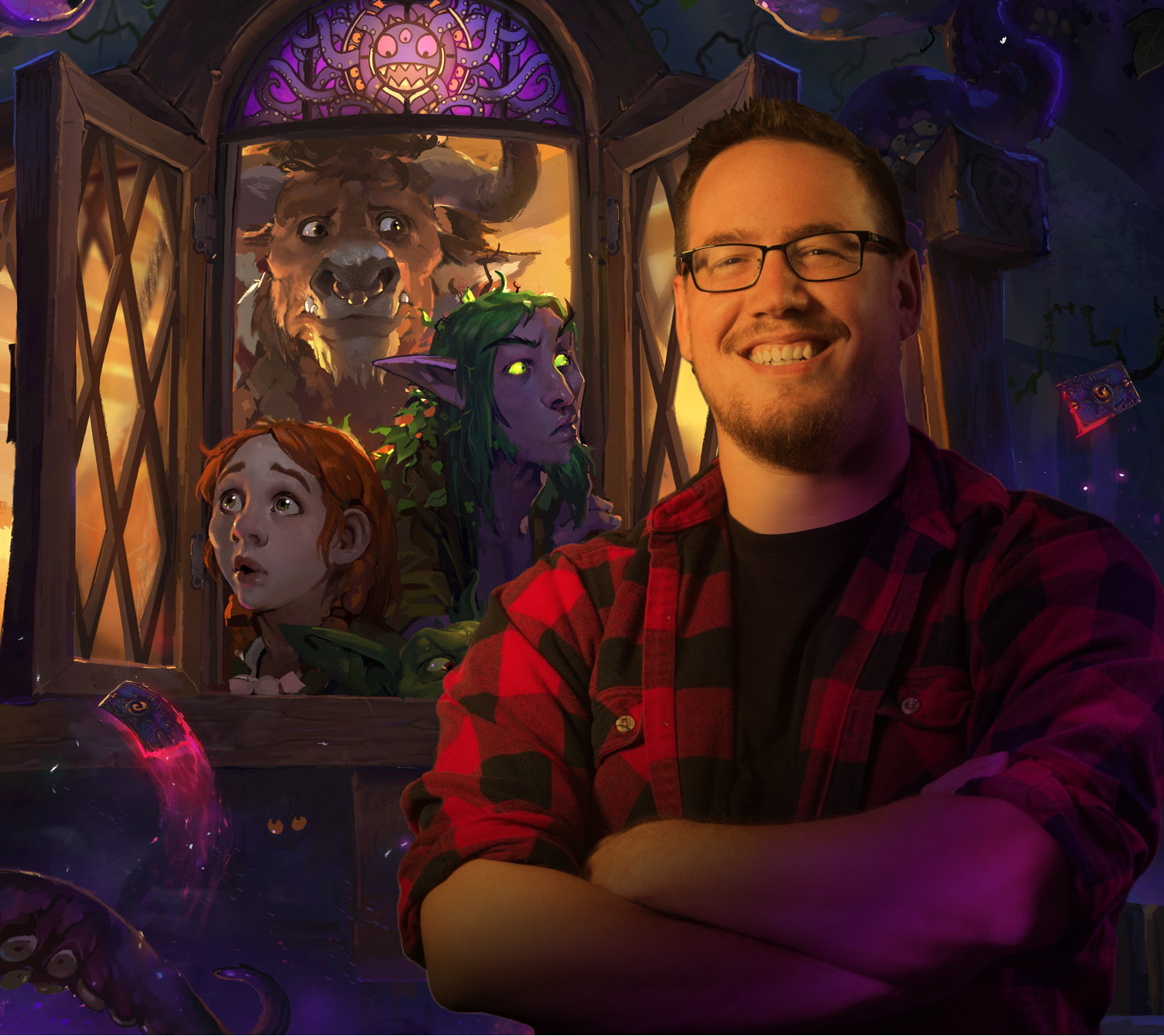
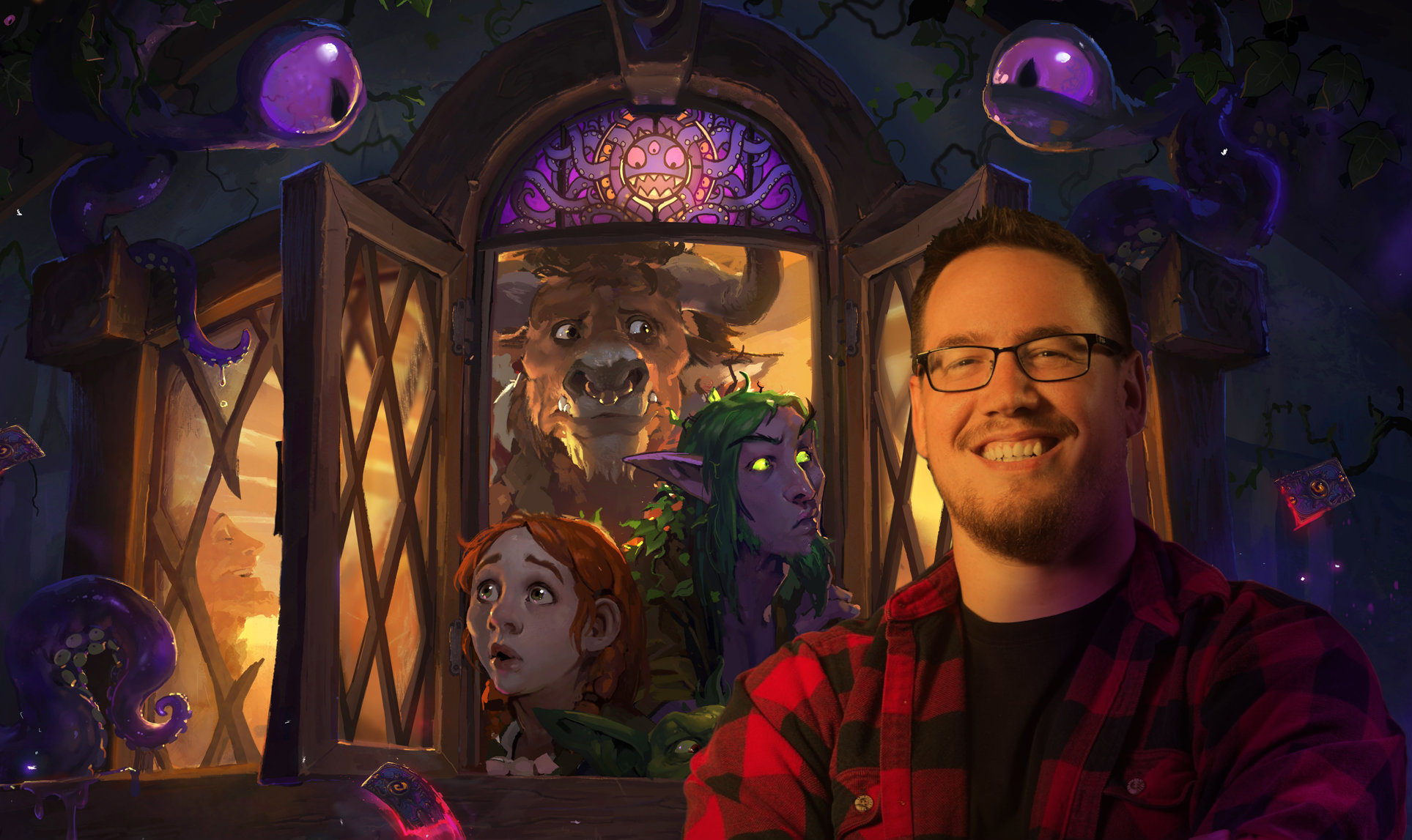
A new Hearthstone expansion is always cause for celebration, because new cards mean an instant refresh of the metagame, which otherwise tends to go stale after a few months. The next expansion, Whispers of the Old Gods, will see 134 new cards injected into the game, many of which are focused around threats from ancient multi-tentacled evil superpowers living deep under Azeroth. The set will arrive at the same time as Hearthstone is split into two main modes of play: Standard and Wild.
The other fun thing about a new card expansion is we get to talk to Ben Brode, Team 5's Lead Designer and one-man thunderous gale of laughter. We spoke with him at a preview event held by Blizzard, discussing the design behind C'Thun, the set's signature legendary card, why there are no new Inspire cards, his take on Reynad's match-making conspiracy theory, and much more...
PC Gamer: Was the leak of the name and theme of the Whispers of the Old Gods frustrating, or is it just par for the course these days?
Ben Brode: I mean, we didn’t make it wildly subtle with our own hints on the website. I think it’s cool to have at least some expectations when you’re getting ready for an announcement. The worst case scenario is people getting excited about something you’re not announcing, like “Aww, what is this?” In some ways, that happened to us with the announcement of Hearthstone itself way back in the day, because really nobody knew what to expect. When we announced it, people said: “What is this? Should I be excited?” Once people started playing they started to get it, but it’s helpful to have a bit of expectation setting, I think.
PCG: The coolest card we’ve seen so far is C’Thun. Can you tell me a bit about the design process? Did one person just run into work saying, “I’ve got this idea for a huge monster and we buff him all the time”?
BB: We had been discussing the Old Gods themselves. We knew the set was about the Old Gods. We knew we had to slam dunk these four awesome minions, so we tried a lot of ideas. We thought about really crazy stuff that we might find a way to actually do someday — sorry I can’t tell you what they were — but none of it was really working. So we were chatting about options, and this kind of popped up and we ran with it. We had more and more ideas that kept building on it, and this became really the centrepiece of the set. C’Thun himself, but he also paved the way for the designs of the other Old Gods as well.
PCG: Giving C’Thun away along with three packs at the start of the expansion — is that just Blizzard’s eternal magnanimity, or is there a danger that C’Thun could whiff otherwise, because you’ve got sixteen synergistic cards tied in with the idea?
Keep up to date with the most important stories and the best deals, as picked by the PC Gamer team.
BB: We knew this was the design we wanted to do, but if you open a pack of Whispers of the Old Gods and it’s got a bunch of cultists, you look at the card and say, “What’s a C’Thun? How do I use this? I have to get a legendary card to even build this deck?!” That doesn’t feel great. So by giving C’Thun away free, it’s all upside, it’s all positive. You have C’Thun, you understand how it works, so when you open up a cultist you have the reference, and you’ve got the foundation for building those awesome C’Thun decks already.
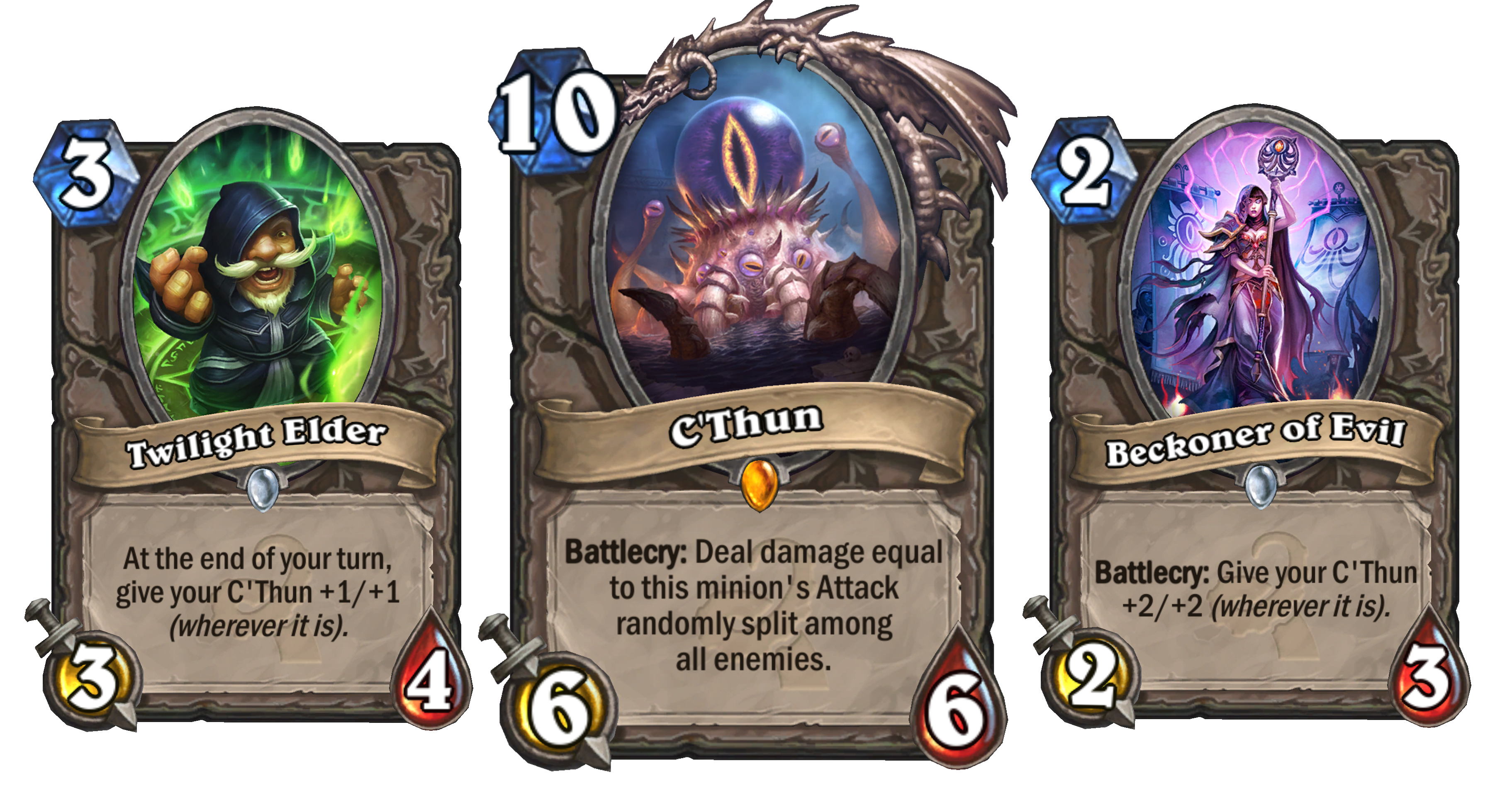
PCG: You announced that there will be no Inspire cards in the new set. RIP Inspire?
BB: I think, in general, it’s interesting when things come and go. Sometimes we’ll experiment with ideas and they won’t come back. I think it’s very unlikely that we’ll have more cultists, for example, in future sets, because they won’t feel like they belong in whatever we explore next. So I think it’s fine for us to explore, then take a break from it, and maybe we’ll go back and maybe we won’t. We’re also trying to come up with new cool ideas.
I do think Inspire had several success stories. Nexus-Champion Saraad gets a reasonable amount of play.
PCG: Was Inspire hard to balance? The sweet spot between completely unplayable and completely overpowered seemed super thin. Is that why so few ended up getting played?
BB: I think that may be somewhat true. I do think Inspire had several success stories. Nexus-Champion Saraad gets a reasonable amount of play. Murloc Knight and [Thunder Bluff] Valiant, the Shaman Inspire minion—those all seem reasonable. They weren’t wildly overpowered, and they weren’t too weak either. I even saw Kodorider pop up every now and again as well. I think we did learn a lot about Inspire, but I don’t think it’s inherently broken. We could explore that again in the future.
PCG: You’ve mentioned the need to take risks with sets. Do you think enough risks were taken with The Grand Tournament?
BB: I think that we did take risks. In The Grand Tournament, we changed our strategy in that we wanted to push a lot of the power into the class cards. We did an exercise where we listed all the cards that we felt were seeing high level competitive play for The Grand Tournament, and it was actually more than the number of high level tournament cards in Naxxramas, but many of the cards in Naxxramas are neutral minions that appear in many different deck types, so you see them more frequently. Cards like Living Roots, Mysterious Challenger, or Wyrmrest Agent—those are tier one cards, but you only see them in 1/9 of all possible decks. I don’t think The Grand Tournament was underpowered from a strict number of cards standpoint, but we made more class cards than we had before and we tried to concentrate a lot of the power in those spaces, so it felt a little less powerful.
PCG: I know you use Tavern Brawl as a testing ground for new mechanics. Why don’t you have a public test realm? Because it would spoil stuff?
BB: There are pros and cons. The pros are obviously that we would get more confidence on balance. One of the cons is that part of the fun of card games is exploration. If we are putting it out there and a lot of it gets solved or figured out, then when we release a set it isn’t as crazy and exciting as it could be. I think there is value in being all excited together about some new thing, and then it’s out and then you can play with it! The gap between when things are discovered and when things are available—the longer that is, the worse. And it would have to be quite long for us to put out a PTR and have enough time to make revisions to those things, and then go through the whole process of putting it on the App Store and the Android Store, and all those things for release. It would be a much longer time between announcement and release than we have right now.
Next page: Will Face Hunter be too strong in Standard, and the problem with auto-include cards.
With over two decades covering videogames, Tim has been there from the beginning. In his case, that meant playing Elite in 'co-op' on a BBC Micro (one player uses the movement keys, the other shoots) until his parents finally caved and bought an Amstrad CPC 6128. These days, when not steering the good ship PC Gamer, Tim spends his time complaining that all Priest mains in Hearthstone are degenerates and raiding in Destiny 2. He's almost certainly doing one of these right now.

